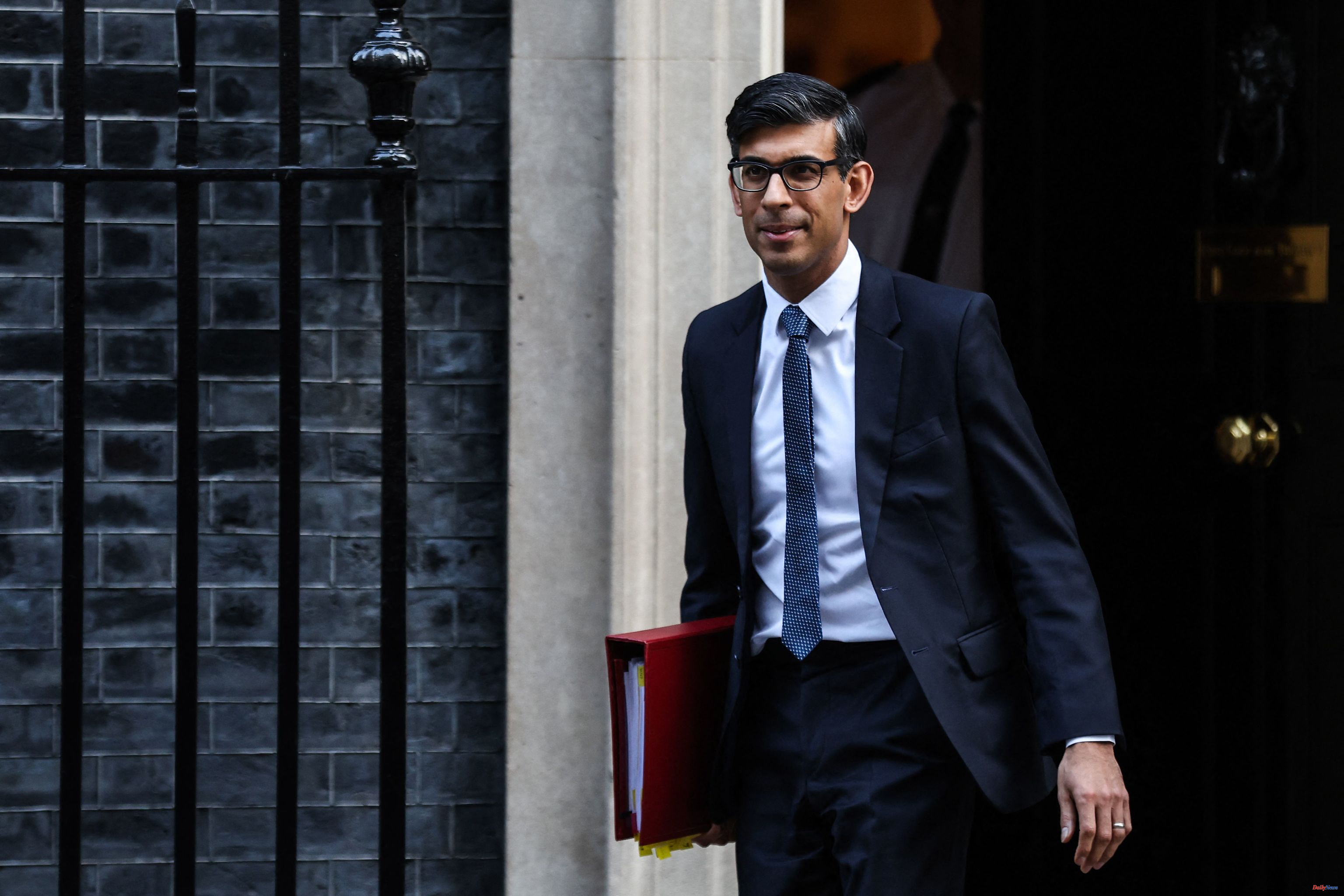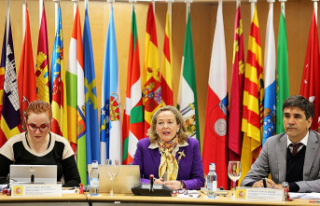Incessant demonstrations in Downing Street. Official pickets at Whitehall ministries. Nurses, teachers, border agents and train drivers joining the strikes that even firefighters threaten to join... Rishi Sunak faces a real bonfire after 100 days in Downing Street, revived by the recent dismissal of Nadhim Zahawi as president of the Conservative Party, due to pressure on his deputy prime minister Dominic Raab, accused of "labour harassment", and Boris Johnson's maneuvers in the dark, claiming prominence at all hours.
The prime minister has apparently not lost his cool and is continuing with his message of "stability and responsibility" despite the sense of continual chaos in British politics. The Tories continue their internal wars, Parliament is once again a chicken coop and the British are losing patience. According to an Ipsos poll for The Evening Standard, 62% think the government is "incompetent" and 55% admit they are "dissatisfied" with their work.
Just 32% believe Sunak has "what it takes" to be prime minister, amid growing doubts about his qualities as a leader and his ability to connect with voters. Keir Starmer's Labor Party is once again leading by 25 points in the polls and a large elmu majority believes that there will be a changing of the guard in the next elections in less than two years.
More than half a million Britons went on strike on February 1 at the climax of the strikes that have shaken the country since the autumn. On the way to Parliament, where he appeared in the weekly question time, the premier was able to see and feel on Wednesday the social discontent that is growing. The unions criticize the inflexible attitude of the Government and assure that the negotiations have gone "backwards" in the last weeks.
Teachers were the last to join on Wednesday, with walkouts affecting 65% of schools. Sunak has acknowledged that he would like to raise the salary, especially for nurses, but has warned that there is no money in the public coffers and that a salary increase like the one they are demanding would serve to feed "the vicious circle" of inflation, still in the 10.5%.
The premier is facing growing pressure from within his own ranks to cut the tax burden and flip his economic policy in the March budget. The hard wing of the party - with The Daily Mail as its eternal whip - has reactivated its offensive against the secretary of the Treasury, Jeremy Hunt, and has resurrected the mantra of "growth", outlawed since the failed budget of Liz Truss.
As a poisoned gift of 100 days, the International Monetary Fund predicted this week that the British economy will be the only one in the G7 that will contract in 2023. The Bank of England is expected to announce a new interest rate hike on Thursday 4%, which will foreseeably contribute to agitate the internal storm even more.
Three years after the end of the transition period, 60% of Britons think Brexit was the "wrong" decision, compared to 40% who think it was the "right" decision (according to Whatukthinks.org poll of polls ). Financier Guy Hands, a former Tory donor, has broken his pact of silence by proclaiming that Brexit "has been a complete disaster". Sunak continues, however, to talk about the "opportunities of Brexit", trusting that an agreement with the EU on the Ireland Protocol can serve as an oxygen balloon.
The dismissal of Nadhim Zahawi as president of the Conservative Party - for violating the "ministerial code" and hiding that he had been sanctioned by the British Treasury for irregularities in his tax return - has dented the prime minister's reputation. Sunak promised "integrity" in his government and yet he took several days to act despite the fact that the evidence against Zahawi was long coming.
The deputy prime minister and head of Justice, Dominic Raab, is also indicated. More than twenty internal officials have accused him of intimidation and workplace harassment, although he says that all he did was "act professionally." An internal investigation, as in the case of Zahawi, will decide his future. Labor Keir Starmer accused Sunak in Parliament of being "too weak" to remove his number two and put an end to "the addiction to scandal and immorality" of the Tories.
The former premier is not satisfied with his secondary role and continues to walk his trail of president, be it with a visit to kyiv or with a talk in Davos. Boris Johnson's allies, realigned in Lord Peter Cruddas' Conservative Democratic Organization, still dream of his return in time for the late 2024 elections. His role in a personal loan of 900,000 euros, in which he was able to act as facilitator on current BBC president Richard Sharp, has raised suspicions of possible influence peddling. The biggest litmus test of Johnson's political survival, though, will be his appearance before the parliamentary committee that will have to decide whether or not he lied at Partygate. Millions of Britons (and possibly Sunak among them) will be able to follow his testimony on television.
According to the criteria of The Trust Project












